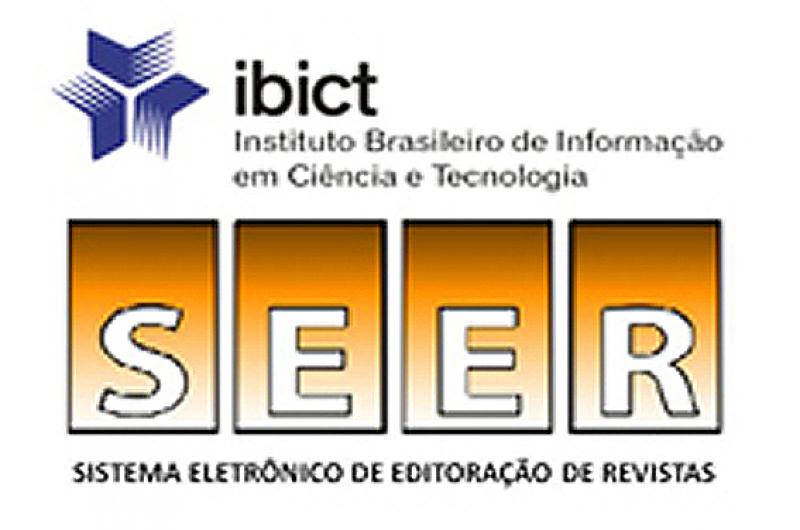Tragosophy exercises in Pandemic Times: the goat, the sheep and the place of inventiveness in the philosophers practice
Visualizações: 295DOI:
https://doi.org/10.31416/rsdv.v8i2.47Keywords:
pandemic, ethical world, estoicism, COVID-19Abstract
This essay develops its itinerary, starting from an analysis of the scenario transformed by the pandemic of COVID-19, comprising a crisis itself as a human response to the virus. This scenario allows us to evaluate several everyday elements and an idea of philosophical reflection, which always runs the risk of turning its back on the world of life. Some fundamental ideas are, therefore, put under analysis,
as an idea of "encounter", a philosophical and human exercise, mainly when a reason imposes quarantine when there are no other possible contamination techniques. At the same time that social isolation is imposed as a life technique, an idea of philosophy can be compensated, for example, when we return to Hellenism schools that think about exercise philosophy and way of life. Thus, the present time, in 2020, is the opportune time for fundamental analyzes in everyday life, and a philosophy of its own is invited to approach the world of life. In this approach, it is possible to note the political polarizations present in our democracy and the ruptures between the political discourses that show the use of understanding if crystallized in it, as an autonomous pole that does not recognize the same. The essay developed here, therefore, rediscovers an Hegelian idea of the need for philosophy, according to which the reason why the search must join or separate by understanding. At the beginning of our modernity, Hegel points, therefore, to the loss of the idea of conciliation in the ethical world. This return to Hegel, which is absolutely brief, has no other function than to show the need to go beyond tradition, learning from it or exercising criticism. When developing an examination
of philosophy as an academic activity, The Exercises of Tragosophy create explanatory metaphors that refer to the differences between the code and the sheep, to give rise to provocations that show our possible renaissance rhythm. It is exactly this instance of the ethical world that will seek to show and point to a need to overcome it. A tragic expression is taken by Luiz Cláudio da Cruzs poetic work
(Marimagístico. Belo Horizonte: Literatura, 2017) and developed with no sense of choosing some fundamental principles of philosophical practice thought from inventiveness as a fundamental principle to activate philosophical philosophy. Therefore, the essay examines some conceptions of philosophy, for example, stoicism and scholasticism, and takes up some fundamental ideas of western history, such as encounter, split of the ethical world, or me and another, and developing the principles
of inventiveness and disobedience as fundamentals a Tragedy, that is, it is a practical practice that helps in the life of the philosopher, an authenticity that surpasses the sections between everyday life and intellectual life, between the exegetical exercise of reading the philosophical text and the philosophical reading. All this in the light of the current context, marked by the COVID-19 pandemic, which is developing in the midst of a crisis and extends to all sectors of human life.
References
ARISTÓTELES, Ética a Nicômacos, tradução de Mário da Gama Kury, São Paulo: editora da Unb, 2001.
BUBER, M. Eu e tu. Introdução e Tradução: Newton Aquiles Von Zuben. 2. ed. São Paulo: Moraes, 1977.
BUBER, M. Sobre comunidade. São Paulo: Perspectiva, 1987. (Coleção Debates). FRIEDMAN, M. Martin Buber: the life of dialogue. London: Routledge and Kegan Paul Limited, 1955.
BUBER Martin. Replies to my Critics. In: SCHILPP, P. A. ; FRIEDMAN, M. (Orgs). The Philosophy of Martin Buber. La Salle/Ill.: Open Court, 1991. (The Library of Living Philosophers, v.12), p. 693.
DEVIR [Luiz Cláudio da Cruz]. Marimagístico. Belo Horizonte: Literato, 2017.
FERGUSON, N., Laydon, D., Nedjati Gilani, G., Imai, N., Ainslie, K., Baguelin, M., ... Ghani, A. (2020). Report 9: impact of non-pharmaceutical interventions (NPIs) to reduce COVID19 mortality and healthcare demand. http://dx.doi.org/10.25561/77482.
HADOT, Pierre, O que é filosofia antiga? São Paulo: Layola, 1999.
HEIDEGGER. “A essência da linguagem” in. A caminho da linguagem. Tradução de Marcia de Sá Cavalcante Schuback. Petrópolis: Vozes, o Francisco, 2003.
HEGEL, G. W. F. Jenaer kritische Schriften (I), Differenz des Fichteschen und Schellingschen Systems der Philosophie, Felix Maneiner Verlag, Hamburg, 1979, p. 10-15.
KERÉNYI, Karl. Dioniso, imagem arquetípica da vida indestrutível, página 274, da editora Odysseus)
PASCAL, B. Pensamentos (Pensées). Milliet, Sérgio (trad. e org.) & Des Granges, Ch. M. (introdução e notas) Rio de Janeiro : Tecnoprint Gráfica S.A. 1966.
PLATÃO, O banquete, Bauru/SP: edipro, 2013.
PLATO , Apology of Socrates and Crito, texto grego e notas de Louis Dyer, Boston, Published by Ginn & Company, 1902. O livro está disponível em https://tinyurl.com/y9byfdb4.
PLUTARCO, “Si la politique est l’affaire des Vieillards” in. Œuvres Morales, Tomo XI, 1re partie Traités 49 -51 edição e tradução para o francês de Marcel Cuvigny, Paris: Belles-Lettres, 1984.
REIS, Alexandre H. Os Jardins da Academia, Curitiba: editora Appris, 2018.
REIS, Alexandre H. História do Suicídio, Livro I. Variações Antigas e o Domínio do Cristianismo. Belo Horizonte: Páginas Editora, 2020.
ROSA, Guimarães. Grande Sertão: Veredas. São Paulo, Cia das Letras, 2019.
SCHMITT, Carl, El concepto de lo político, Madrid: Alianza Editoral, 2006.
SCHOPENHAUER, Arthur. Parerga und Paralipomena. Zurique: Haffmans, 2 vols, 1988.
SCHOPENHAUER, Arthur. O mundo como vontade e como representação, tradução, apresentação, notas e índices de Jair Barboza. - São Paulo: Editora UNESP, 2005.
XENOFONTES. Apologia de Sócrates. São Paulo: Abril Cultural, 1999 (Coleção Os Pensadores).















